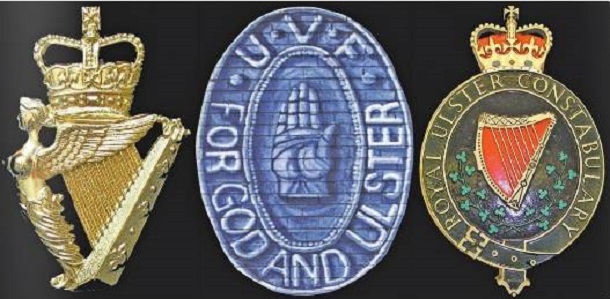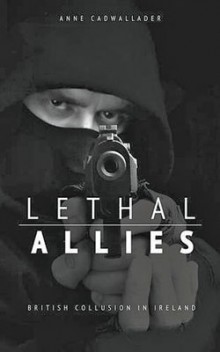6 January 2016
Soldiers, police and UVF in Glenanne Gang murders shielded by British Government hiding behind 'national security'

THIS WEEK marked the 40th anniversary of the co-ordinated sectarian attacks carried out by the Glenanne Gang – made up members of the Royal Ulster Constabulary, the British Army's Ulster Defence Regiment and the illegal Ulster Volunteer Force death squad – that left six men dead.
Three members of the Reavey family – brothers John Martin, Brian and Anthony – were killed near the south Armagh village of Whitecross; the second attack saw brothers Barry and Declan O'Dowd shot dead alongside their uncle Joe in their home in Gilford, County Down, on 4 January 1976.
The families marked the anniversary of the killings by issuing a joint statement in which they criticised the British Government over its failure to set up an independent mechanism to investigate the past and Whitehall using the spurious “national security” excuse to stop relatives obtaining information.
The refusal of the British Government to come clean on the 1976 killings is set against the information that organisations such as Relatives for Justice and the Pat Finucane Centre have uncovered over the years through painstaking research.
The organistaions have discovered that the weapons used to kill the Reavey brothers and the O'Dowds had been used in a number of other fatal attacks in the months before and after 4 January 1976.
These included the killings of Denis Mullen, the attack on Donnelly’s Bar (in which Patsy Donnelly, Michael Donnelly and Trevor Brecknell were killed), and the killings of Seán Farmer, Colm McCartney, Patsy McNeice, Peter and Jenny McKearney, and Fred McLaughlin.

In her acclaimed investigations published in her book Lethal Allies (Mercier Press), Pat Finucane Centre case worker and former BBC journalist Anne Cadwallader not only pieced together the forensic history of the guns used in many of attacks carried out by the Glenanne Gang but also mapped the activities of the notorious death squad whose make-up included loyalist killers, British Army soldiers from the Ulster Defence Regiment and serving RUC police officers.
Some of these RUC members, attached to the notorious Special Patrol Group, were implicated in the attack on the Rock Bar in Granemore, County Armagh, in June 1976 while on duty.
That the NIO, RUC, MI5 and the Public Prosecution Service were all aware of these facts yet did not inform the families was a source of great anger to 93-year-old Barney O'Dowd, Joe's brother. He said:
“It beggars belief that the British Government is still hiding behind 'national security'.
“What are they afraid of?
“Is it because of the probable involvement of RUC agent Robin Jackson in the attack on our home? The Historical Enquiries Team report on the Miami Showband Massacre established beyond any reasonable doubt that Jackson was an agent linked to the RUC.”
The families also acknowledged “the ten families of those killed the following day at Kingsmills [who] also suffered terrible loss and our thoughts and prayers are with them”.
Follow us on Facebook
An Phoblacht on Twitter
Uncomfortable Conversations

An initiative for dialogue
for reconciliation
— — — — — — —
Contributions from key figures in the churches, academia and wider civic society as well as senior republican figures





